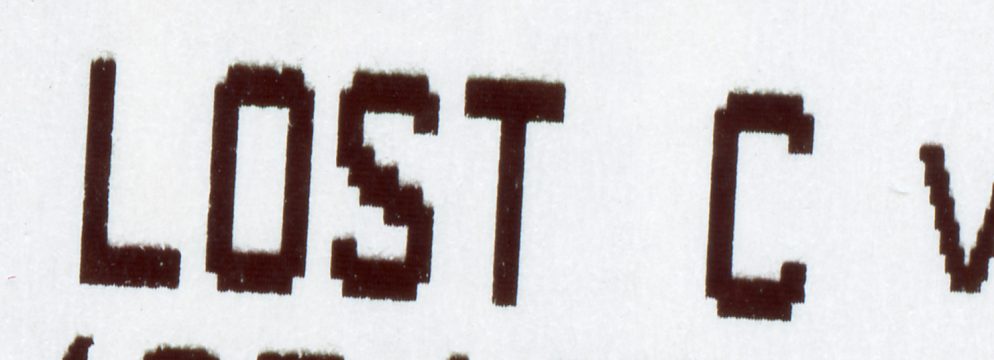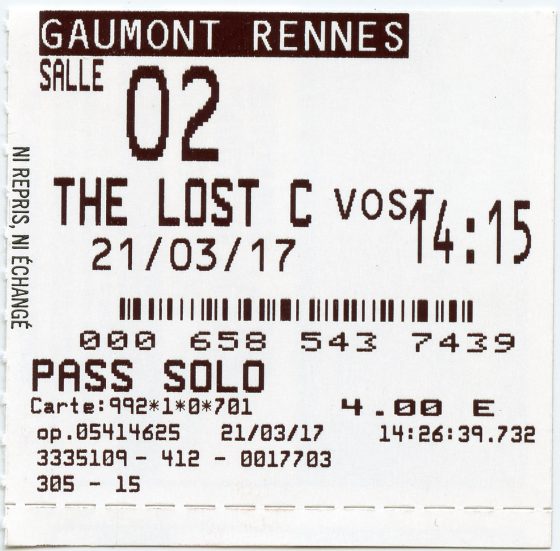The Lost City of Z

Fourteen hearts of darkness give or take
‘No…there!’ Is generally what I was saying throughout The Lost City of Z, in reference to where they should have started. When I found myself saying it two hours in, maybe you get the point: you can see why they made the movie, you can see why they made it two and a half hours long and you can see why they shouldn’t have.

It’s a shame, really, as the film would benefit from either being much shorter or much longer. In the latter case, it feels a bit like a truncated and transplanted mini-series, and not in the best possible way. Its starting and stopping points are nevertheless a fascinating lesson in what parts of story should be developed into scenes, and what should be single lines of dialog, or moments. There are three that stick out.
The hunt, then dancing.
In the beginning we are treated to some fun CG stag hunting, including a first time ever (first semi-realistic time ever) horse fall. You can thrill and not feel bad about not calling the SPCA. Afterwards, as Mr. Charlie Hunnam and Ms. Sienna Miller get ready for the big ball, We learn that Mr. Hunnam is desperate for a promotion in the 1904 British Army…
The scene where we learn that Mr. Hunnam is desperate for a promotion in the 1904 British Army
Fine, four that stick out. Motives are, dear screenwriter, something that the audience needs to know before risking polygon horsies. Back to…
The hunt, then dancing
…the ball, having bagged the stag, he is sure to meet the Colonel. Now that we know things that we should have known before the hunt. His attempt will be unsuccessful, as we learn through an extremely concise bit of writing:
As they walk off having said what may be the most British thing ever, we know both that Mr. Humman’s effort will unsuccessful and everything we need about his character. Don’t get me wrong, the hunt stuff is all epic-y. But this is a big story. To use this one line as the introduction to the character without the hunt would, besides showing a level of confidence and command, get us right behind the Man Unfairly Judged.
Unearned Doom
On Mr. Hunnam’s first unsuccessful trip up the river not to find Kurtz, he burns the letter he has received from his anachronistically progressive, but to be fair, she’s still playing the same fucking part that all women play in these movies so can we please knock it off just the one time wife. This is a great idea: that in doom, he will carry no memories, as the pain in the loss would be too much to bear.
Thing is, the feeling of doom had not been earned yet. One guy died, which is like sad or whatever, but puts this journey leagues ahead of any other expedition at the time. Though I didn’t know it at the time, there’s a lot of material to wade through (I’m giving away the ending in a second. Jeez. You wanna curse my name, you gotta earn it. By wading through all the material), the film is bootstrapped – it needs to show something, but shows too much and not enough. As before, burning the letter would have been enough.
The extremely unfortunate ending
Look, it’s kind of awesome that he keeps going back and never finds The Lost City, and fucking well dies and kills his son doing it.
Yeah. That’s what happens. I’m saying because I’m genuinely not sure if I would have liked it better knowing. Like the it’s-unfair-to-compare-but-the-filmmakers-were-trading-off-the-mythos-and-it-cuts-both-ways-and-still-way-better Lawrence of Arabia. Anyway, you’re not going to see the movie and you already looked it up on whatever website we’re using not to be guilted by wikipedia donation calls. So shut up about spoilers. Plus, I didn’t tell you about the second trip, the lawsuit, the times his family was sad, or World War I.
I’m not a monster.
The core is a good story, that he fails, the anti-adventure story. It contradicts all the stories that come before, a derring-don’t go there.

The serviceable and that’s saying a lot these days Logan scored points off using a song from Johnny Cash’s American series for its trailer. The trailer for the new-they’re-never-going-to-stop Pirates film does the same. It will no do doubt be as huge a success, having copied the most important element of that film.
Unfortunately, all this sprawling nonsense and lack of poetic compression indicates what we should have guessed: that the writers lack the ability to circumscribe a character needed to make this ending matter. He could be an idiot, an obsessive, an straight up colonist, even an optimist. A single trait against which to read the anti-heroic story.
What he can’t be, even laying aside the fact that he was a 20th Century British colonialist, is an Everyman. He’s just an all around good chap, the kind that audiences never actually identify with. We’re not here to see how awesome we think we are, we’re here to the secret fantasies of our worst qualities. We’re here to see how we really are.
Why do we see movies again?
Maybe Everyman was too strong, which is never something you want to be saying. Instead, he just takes on the characteristics of whatever traits are require for us to like him in the scene: free-thinking man to the suffragette wife, obsessed son to the British military types, enlightened whitey to the Amazonians and so on.
In the end, as he and his son are about to be ritually killed by the natives, Mr. Hunnam’s character seems to have received a 80-year advance copy of The Secret, as he tells his son of the Indian’s mystical insight into death. To be fair, I would even accept this kind of character, because getting killed by the natives is the appropriately just end to that life-coach choice. Unfortunately, he suddenly has these rather anachronistic traits, and it comes off like an excuse to make the audience feel all warm and fuzzy that he died for no real reason.
The whole movie
My point, the clarity of which has been ironically undone by the film’s own keep-it-all-in structure, is that you have to choose. Great films are about one thing. Can’t believe I haven’t said it here before, and that there isn’t a rule down at the bottom that I went to the trouble to write code for only to be ignored, but good films are like theses: they ask a question which requires a yes or no answer. Know the question; the ending will provide the answer.
Typically the question is the seemingly but not actually banal: ‘Does the good guy win?’ For the Oscar winner it’s the seemingly profound but actually calculated ‘does the good guy always win?’ In the case here, it could have simply been, ‘Are adventures actually a good idea?’, to which one must answer one way or the other. Each character, scene, line and beat relate to that question somehow. No matter how interesting, or in this case, true to life, you jettison the ones that don’t relate to the thesis. And if it seems I’ve straw-manned our filmmakers into failing to get a yes/no question right, they’re the ones who wrote the test. I’m the one who failed.
Unrelated thing, doesn’t count as six, so maybe I’ll change the color of the font or something.
The cinematography is notably, take you out of the story, awful, With his seeming insistence of shooting the dialog scenes in darkened profile, and tracking through the jungle in medium-wide profile, you feel like you’re watching the Plan B equivalent of Fantasy Island: shooting a real jungle like you’re on a sound stage. They obviously went there, can you tell me why there’s only one shot, and nearly at the end, that actually shows the landscape? I waited to see the DP credit so as to exoriciate whomever.
On a sad Second Peter Hyams rule note, I was genuinely flabbergasted to see Âqâ Darius Khonji’s name as the director of photography at the end. It struck me through the heart, not unlike when Mr. Khonji was excluded from nomination for Se7en, one of the best shot films of time. I can’t help but feel that slight led to the epic ugliness of this film, and I am sad.
The Take

$0.85
The Lonely Comments Section

 [logo]
[logo]